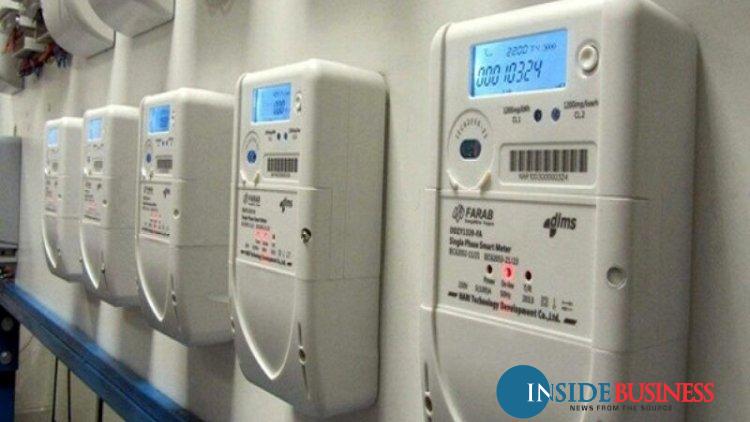New Guidelines: CBN Bans Electricity Meters Importation
The Central Bank of Nigeria (CBN) has banned the importation of fully assembled electricity Meters into the country with effect from October 1, 2020.
The prohibition is contained in the new guidelines released on Monday by the apex bank’s Department of Development Financing.
The CBN said, “Except meters imported by Meter Asset Providers (MAP) already in the country as at September 30, 2020 and verified by NERC, importation of related metering infrastructure that are currently being produced in the country is also prohibited.”
The monetary authority stated that the release of the framework for National Mass Metering Programme (NMMP) is aimed at closing the current metering gap of over 10 million in the Nigeria Electricity Supply Industry (NESI).
It added, “The introduction of the service-based tariff (SBT) in the NESI effective from 1st September, 2020 has put increased emphasis on the need to close the metering gap in the NESI.
“Closing this gap will enhance efficiency of revenue collection by Distribution Companies (DisCos) and thereby facilitate meeting their obligations to other upstream market participants.”
The apex bank stated that the framework, whichever outlines the operational modalities of the CBN’s financing support to the DisCos (downstream) and local meter manufacturers (upstream), is sub-divided into three categories: electricity distribution companies; local meter manufacturers and additional requirements.
For the DisCos, the CBN facility is restricted to the procurement and deployment of meters and the associated infrastructure (software and hardware) to support the metering network.
“These include, but not limited to procurement of NERC approved meters, payments for installation and deployment of meters, procurement of other metering infrastructure related production and service provision as may be prescribed by NERC in relevant orders or by prevailing rules and regulations, procurement of backend metering platform and data management systems as well as procurement of customer enumeration services.”
The guidelines also stated that the interest rate for eligible companies accessing the facility will not be more than nine per cent per annum or any other rate as may be specified by CBN.
It further said as part of its COVID-19 relief package, “the interest rate to be charged up to 28th February, 2021, shall not exceed five per cent per annum.”
Besides, it said the facility has a maximum tenor of 10 years, but not exceeding 2030, adding that ”there shall be a moratorium on the principal amount for a period not exceeding 24 months from date of loan disbursement.”
On collateral requirement for the facility, the CBN said: “NERC’s approval of a DisCos loan request as a regulated debt obligation to be charged against all energy collections for the NESI as the next line charge in the payment waterfalls of each DisCo below the existing payment to the Nigeria Electricity Market Stabilisation Facility (NEMSF), will serve as a collateral for the lending.”
On local meter manufacturers, the regulator said eligible activities for companies in this category include “procurement of manufacturing or assembly equipment for meters; set up or expansion of manufacturing or assembly facilities; procurement of production data management and software systems and working capital.”
Furthermore, the CBN affirmed that sanctions would be applied for infractions by participating financial institutions.
It stated: “Diversion of funds by the PFIs shall attract a penalty at the bank’s maximum lending rate at the time of infraction and non rendition of returns or the rendition of false returns shall attract penalty.”

It added that key objectives of the NMMP include: increasing Nigeria’s metering rate, elimination of arbitrary estimated billing, strengthening the local meter value chain by increasing local meter manufacturing, assembly and deployment capacity.
“It will support Nigeria’s economic recovery by creating jobs in the local meter value chain and reducing collection losses and increasing financial flows to achieve 100 per cent market remittance obligations of the DisCos.
“It will also improve network monitoring capability and availability of data for market administration and investment decision making,’’ it stated.


[…] Federal Government has saved up to N3.28 trillion from reduction of importation in the last three Years, the Minister of Science and Technology, Dr. Ogbonnaya Onu, has […]
[…] Federal Government has saved up to N3.28 trillion from reduction of importation in the last three Years, the Minister of Science and Technology, Dr. Ogbonnaya Onu, has […]